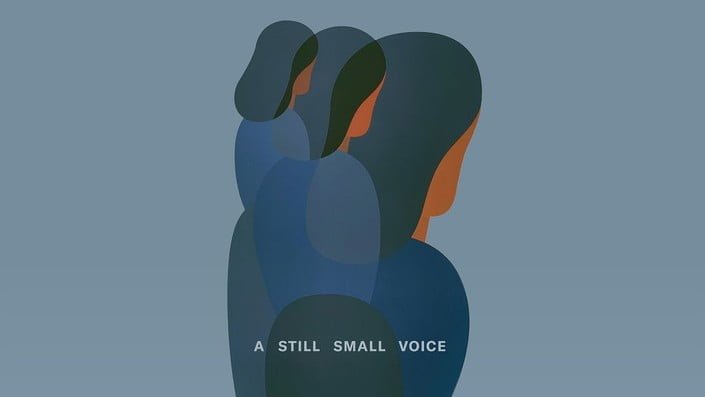
A Still Small Voice
Hospitals were not what I thought they would be like, given all the messy and chaotic ones I had seen on TV or in movies growing up. When you volunteer in an intensive care unit as a scrub, it’s mostly quiet until something happens someone comes in or someone goes out and then suddenly there’s a lot of movement by some medical team.
But even in that quiet space, there are always whispers and sobs from grieving families, cries from people in pain, and the occasional tired sigh by someone on staff. No one wants to find themselves requiring this much intervention between life and death, but as we sleep at night there is a whole battalion of doctors and nurses and support staff watching over the everyday miracles and tragedies that take place on these floors.
Luke Lorentzen’s “A Still Small Voice” is his latest documentary feature; it offers a tender portrait of an under-seen group among a hospital system’s many departments. The film embeds with new residents in spiritual care at Mt. Sinai Hospital in New York City; following Margaret “Mati” Engel (an aspiring hospital chaplain) as she spends time with patients and their families who are facing horribly sad circumstances: cancer patients awaiting their last breaths; young parents cradling their dead babies who will never grow up; a daughter mourning her father.
Over time we see the toll this takes on Mati through the camera which has only been made worse by COVID-19; eventually her supervisor David gets tired too and can’t help Mati when she needs it most: even chaplains are not infinite resources.
“A Still Small Voice” is similar to another film by Lorentzen, “Midnight Family,” in that he is interested in what makes some people care more about others than themselves to the point where they make it their job; the work behind roles most of society takes for granted intensifies through his camera. As with “Midnight Family,” this documentary deals just as much with routine check-in and procedures as it does emotional highs and lows. The folks at the center are unsung heroes who sacrifice sleep and sometimes sanity for strangers.
They nonchalantly step into situations most civilians have no idea how to handle, be that cleaning up an open wound or answering uncomfortable questions about death for someone grappling with their own mortality. The problem of healthcare burnout remains largely unaddressed here, though Lorentzen could have pursued this angle given Mati’s warning not to get too attached.
Lorentzen tends to shoot from a respectful distance, as if trying not to crowd Mati or her patients (or maybe her boss) while she works. But when she’s alone on calls, he gets closer: We see her rub her chest and touch her Star of David pendant for comfort while she talks grieving voices down on the other end of a cell phone connection. These moments show us how worn out she is by it all and how dangerous over commitment can be in caregiving.
The filmmaker also shows us many ways that Mati cares for people beyond therapy sessions. She checks in on fellow residents, bearing witness to each other’s growth during these formative years and she chats up exhausted nurses and doctors alike, distributing free tea bags and pastries among her colleagues.
David has more secrets than he lets on with his housemates; we’re privy to his private calls with a mentor, where he admits defeat after difficult nights. Not everything goes according to plan in this movie, either: When tensions between Mati and David reach a boiling point, the camera keeps its distance. Because at the end of the day, those who show up for your best and worst moments are just like you flawed, probably tired and seeking answers to everything life throws at us.
Watch A Still Small Voice For Free On Gomovies.
.jpg?w=1024&resize=1024,1024&ssl=1)
.jpg?w=1024&resize=1024,1024&ssl=1)
.jpg?w=1024&resize=1024,1024&ssl=1)
.jpg?w=1024&resize=1024,1024&ssl=1)
.webp?w=1024&resize=1024,1024&ssl=1)
.jpg?w=1024&resize=1024,1024&ssl=1)
.jpg?w=1024&resize=1024,1024&ssl=1)
.jpg?w=1024&resize=1024,1024&ssl=1)